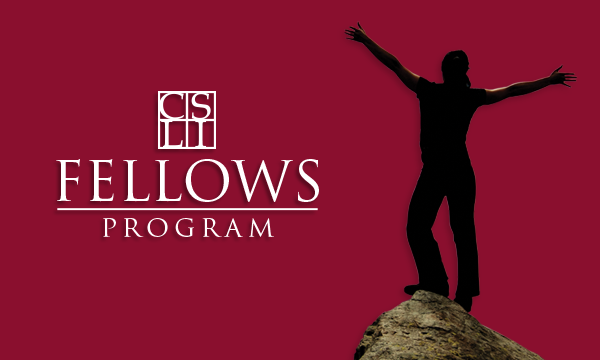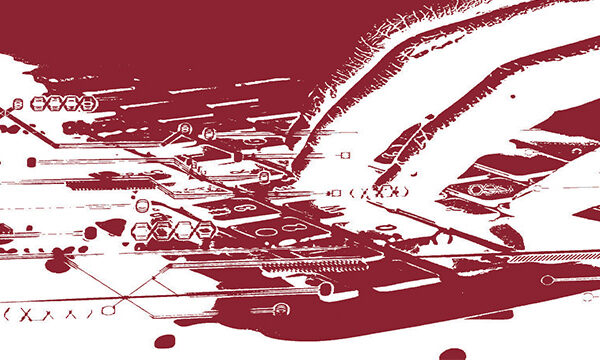Back to series

May 2017
In his book The Four Loves, C.S. Lewis considered the meaning of “nearness to God”:
We must distinguish two things which might both possibly be called “nearness to God.” One is likeness to God. God has impressed some sort of likeness to Himself, I suppose, in all that He has made. Space and time, in their own fashion, mirror His greatness; all life, His fecundity; animal life, His activity. Man has a more important likeness than these by being rational. Angels, we believe have likenesses which Man lacks: immortality and intuitive knowledge. In that way all men, whether good or bad, all angels including those that fell, are more like God than the animals are. Their natures are in this sense “nearer” to the Divine Nature. But, secondly, there is what we may call nearness of approach. If this is what we mean, the states in which a man is “nearest” to God are those in which he is most surely and swiftly approaching his final union with God, vision of God and enjoyment of God. And as soon as we distinguish nearness-by-likeness and nearness-of-approach, we see that they do not necessarily coincide. They may or may not…
 What is near Him by likeness is never, by that fact alone, going to be any nearer. But nearness of approach is, by definition, increasing nearness. And whereas the likeness is given to us — and can be received with or without thanks, can be used or abused — the approach, however initiated and supported by Grace, is something we must do. Creatures are made in their varying ways images of God without their own collaboration or even consent. It is not so that they become sons of God. And the likeness they receive by sonship is not that of images or portraits. It is in one way more than likeness, for it is union or unity with God in will; but this is consistent with all the differences we have been considering. Hence, as a better writer has said, our imitation of God in this life — that is, our willed imitation as distinct from any of the likenesses which He has impressed upon our nature or states — must be an imitation of God incarnate: our model is the Jesus, not only of Calvary, but of the workshop, the roads, the crowds, the clamorous demands and surly oppositions, the lack of all peace and privacy, the interruptions. For this, so strangely unlike anything we can attribute to the Divine life in itself, is apparently not only like, but is, the Divine life operating under human conditions.1
What is near Him by likeness is never, by that fact alone, going to be any nearer. But nearness of approach is, by definition, increasing nearness. And whereas the likeness is given to us — and can be received with or without thanks, can be used or abused — the approach, however initiated and supported by Grace, is something we must do. Creatures are made in their varying ways images of God without their own collaboration or even consent. It is not so that they become sons of God. And the likeness they receive by sonship is not that of images or portraits. It is in one way more than likeness, for it is union or unity with God in will; but this is consistent with all the differences we have been considering. Hence, as a better writer has said, our imitation of God in this life — that is, our willed imitation as distinct from any of the likenesses which He has impressed upon our nature or states — must be an imitation of God incarnate: our model is the Jesus, not only of Calvary, but of the workshop, the roads, the crowds, the clamorous demands and surly oppositions, the lack of all peace and privacy, the interruptions. For this, so strangely unlike anything we can attribute to the Divine life in itself, is apparently not only like, but is, the Divine life operating under human conditions.1
As we seek to grow in faith and draw nearer to God, let us imitate Jesus and walk with love in all aspects of our life — at home and at church, in the workplace, when we go shopping and on vacation, through the good times and the challenging times of life, and in all of our dealings with others.
“Therefore be imitators of God, as beloved children.
And walk in love, as Christ loved us and gave himself up for us,
a fragrant offering and sacrifice to God.”
EPHESIANS 5:1-2 (ESV)
1 C.S. Lewis, The Four Loves (Harvest/HBJ, 1960), pp. 15-17.
 COPYRIGHT: This publication is published by C.S. Lewis Institute; 8001 Braddock Road, Suite 301; Springfield, VA 22151. Portions of the publication may be reproduced for noncommercial, local church or ministry use without prior permission. Electronic copies of the PDF files may be duplicated and transmitted via e-mail for personal and church use. Articles may not be modified without prior written permission of the Institute. For questions, contact the Institute: 703.914.5602 or email us.
COPYRIGHT: This publication is published by C.S. Lewis Institute; 8001 Braddock Road, Suite 301; Springfield, VA 22151. Portions of the publication may be reproduced for noncommercial, local church or ministry use without prior permission. Electronic copies of the PDF files may be duplicated and transmitted via e-mail for personal and church use. Articles may not be modified without prior written permission of the Institute. For questions, contact the Institute: 703.914.5602 or email us.
-
Recent Podcasts
Questions That Matter – Randy Newman – Can We Prove that God Exists?
by Randy Newman on March 7, 2025Can you prove that God exists? What if...Read More
-
I Was Decided On: Interview with C.S. Lewis
by Sherwood E. Wirt on March 7, 2025
-
Truth Seeker – Dr. Larry Sanger’s Story
by Larry Sanger on February 28, 2025
-
Recent Publications
The Impact of Technology on the Christian Life
by Tony Reinke on February 14, 2025"It’s applied technique. So it’s an art. It’s...Read More
-
C.S. Lewis and the Crisis of the Modern Self
by Thiago M. Silva on February 1, 2025
-
Why Are Christians So Hypocritical?
by William L. Kynes on January 1, 2025
0
All Booked
0.00
All Booked
0.00
All Booked
23903
Fellows Program – Now Accepting Applications!
https://www.cslewisinstitute.org/?event=fellows-program-applications-available-on-february-1st&event_date=2025-04-15®=1
https://www.paypal.com/cgi-bin/webscr
2025-04-15

Next coming event
Days
Hours
Minutes
Seconds
Fellows Program – Now Accepting Applications!
On April 15, 2025 at 12:55 amSpeakers

C.S. Lewis Institute
Author
Team Members
C.S. Lewis Institute
Author
C.S. Lewis Institute, in the legacy of C.S. Lewis, works to develop wholehearted disciples of Jesus Christ who will articulate, defend, share, and live their faith in personal and public life. Founded in 1976 by Dr. James Houston and James R. Hiskey, the Institute provides leading teachers who address important issues of the day from the perspective of Biblical orthodoxy, while also providing discipleship for individuals in small groups.




